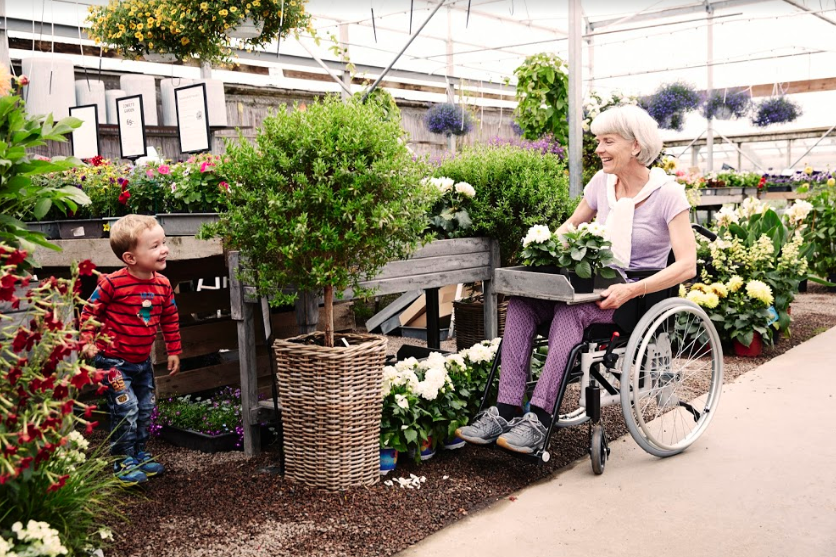Free delivery on orders over £50, only £4.95 under £50
Free delivery on orders over £50, only £4.95 under £50
Welcome to our blog, your one-stop resource for news, features and resources for living life to the fullest. View our articles on the latest mobility products and features with disability bloggers.
Posted by Emily . on December 10, 2018

Gardening is a fantastic way to stay fit and healthy doing something you love, as well as getting that much-needed vitamin D from spending some time outdoors.
If you don’t have access to a garden, spending time on an allotment of your own or local community gardening space can bring all the same benefits and joy - allotments can be a more sociable place too and it is a great way to spend time with other people and make new friends.
Whether you have trouble kneeling, achy joints or use a wheelchair, gardening is still a hobby that you can enjoy. There are actually many simple ways in which you can adapt your garden to make it accessible to everyone.
A garden is best when you can move around with ease, walkways need to be wide and level enough for wheelchair users and to lower the risk of tripping or falling. Wooden decking, concrete paths or small gravel paths are some ideal types of a pathway that are easy to upkeep. Outdoor grab rails dotted around the garden can offer a helping hand when getting down steps. Adding seating around the garden or using a garden kneeler can provide a rest where necessary. If you have a bench or wooden seating in your garden, a support cushion can provide some extra comfort when sitting, also handy to transport these are ideal for days out and holidays and for use in wheelchairs.
Suitable tools can make all the difference when out gardening. A tool with an ergonomic handle can lessen strains and pains on the wrists and hands, making them more comfortable to use for longer. An easi-grip tool with an angled handle keeps the wrist in a natural, stress-free position, there are even arm-support cuffs available as an add-on accessory for extra support and grip. Lightweight containers with wheels can help you easily transport tools and plants around the garden. A tool with an extended handle like the handiscoop or a reacher can help you pick up weeds or dropped items without over-stretching or bending. Handiscoops are also designed as an easy way to pick up pet poop, ideal if you have a dog or neighbouring feline that likes to go in the garden!
When it comes to cutting the grass, if it is not a job you can do yourself, one option is to hire a professional or you could consider replacing the grass with paving or artificial turf as these require minimum effort to maintain. If tending to flower beds is a struggle or if you use a wheelchair, one solution is to build or buy raised flower beds. You could use old crates and recycled wood to build the planters and make sure you have a level reach so you can tend to them. Investing in a hose, sprinkler or a simple pressurised spray bottle is an easy way to keep your plants hydrated without having to use a heavy watering can.
Choosing plants that are low maintenance will also save you hours of pruning, some options include:
Whether you have trouble kneeling, achy joints or use a wheelchair, gardening is still a hobby that you can enjoy, and with the right tools and equipment, you can create a relaxing and beautiful space outdoors for you and your family to enjoy.